The Search for God Page 3.1.2
Truth
Truth is an elusive concept, just like ultimate reality. The idea of true and false can be a logical statement like 1 + 1 = 2 is true. Truth can be in regard to science or telling the truth, like in a court of law.
When a doctor speaks to patients, they want the truth about why they are hurting. We expect our children to tell us the truth about who stole the money from mom’s purse. As a society, we expect and want the truth when people speak to us.

Forms Of Truth
However, to quote my favorite fantasy series, “They don’t lie, not right out, but the truth an Aes Sedai tells you is not always the truth you think it is,” Tam al’thor, by Robert Jordan, The Wheel of Time.
As a society and as people, we deal with half-truths, partial truths, and straight-out lies. There are things we think are true but are not, like why my wife might be mad or why gas prices are rising.
Verifying Truth
When someone tells us something or when we obtain a piece of information, how do we verify the truth of the statement? In math and science, we can repeat the experiment. But what about verifying the truth of history, a crime, or of some being saying, “I am god”?
So we have two issues. We have the truth of the statement and the belief of the hearer. If someone does not believe a true statement, that does not make the statement untrue, it simply means that that non-believer is imperceptive, obtuse, or a fool.
| The speaker says, “I am god” | |||
| The listener hears, “I am god | True Statement | False Statement | |
| Believe | Trust | Deceived trust | |
| Not believe | Imperceptive disbelief | Discerning disbelief |
Relative Truth
Currently, in our society, some believe that no absolute truth exists or that all truth is relative. “You have your truth, and I have mine.” Relative truth applies to situations like our favorite flavor of ice cream or our favorite football team.
These are opinions and preferences. But can relative truth apply to absolute truth claims? So if I state that god exists, or apples exist, whether a person does not believe makes no difference to the truth or falsity of the statement.
Check out this video
Relative truth involves personal feelings, personal judgments, and personal perceptions. Relative truth exists when not all the facts are known. Humans are accustomed to living with relative truth because we rarely possess all the knowledge and information about most situations.
Do our limited ability and limited capacity rule out or eliminate the absolute truth about situations and events? Clearly not.
“I can absolutely say absolute truth does not exist.” If we were face to face with a person making this statement, even on a cursory consideration we could determine that this statement is absurd and invalidates itself.
This statement violates the law of noncontradiction. This person is making an absolute truth claim and then denying absolute truth claims. Even the simple proposition that 1 + 1 = 2 is an absolute truth claim.
Absolute truth claims are grounded in the laws of logic. God exists. Absolute truth claim. Either god exists, or god does not exist; there is no middle ground. Our belief does not change absolute truth claims.
Absolute truth posits there is a reality outside our own perspective that is true whether we witness the event or believe the event. Here is a classic example: if a tree falls in the woods and no one is around to witness the event, did it happen?

In reality, absolute truth encompasses all events, what actually is occurring and what has already occurred. Absolute truth envelops and complements ultimate reality. Absolute truth is the recognition and acknowledgment of the events that have occurred and are occurring.
So the reality is what is, and arises from the laws of identity and causality. Truth is an endorsement of knowledge about reality, in that, things that exist and things that happened actually occur in the manner described.
We have limited perception and knowledge, and therefore have limited truth. But if god exists and possesses all the attributes that we have previously outlined, he would be the only all-knowing witness and judge to the absolute truth regarding humans, the universe, and ultimate reality.
His understanding, His truth, would be absolute. God’s truth arises out of his nature and attributes, so god would be the essence of truth. Now limited human understanding can still reject the truth that god states and presents. Humans can reject that the earth is a sphere.
Denying Absolute Truth
Humans can verbally deny absolute truth exists. Do our denial and disbelief negate ultimate reality and absolute truth? Of course not. Here is an interesting statement: All truth claims require a belief stance. Someone might say, “I will neither affirm nor deny that statement.”
Sure, humans can attempt to claim they have no belief about truth statements. We can claim we lack enough information. So let me rephrase. All truth claims about god require a belief stance.
Since our definition of god includes knowledge of ultimate reality and now the judge of absolute truth, any statement god makes cannot involve indecision. So now, if I say god exists and a human says, “I don’t know,” or “I don’t have enough knowledge,” what do we say?
Well, if god exists as an actual being, what would god say? God says, “Don’t lie.” Does that person believe that? God says, “Honor god.” Does the person believe that? God says…, and on and on we go.
Do You See The Issue?
Since god, by our definition, knows ultimate reality and absolute truth, any ambiguity in the human response is regarded as doubt and disbelief. Belief involves trust in the being uttering the statement.
Therefore, humans must seek whether god has communicated with humans. Is ignorance of the law an excuse? Second, and just as important, if we find communication from god, our belief must be backed up by trust and submission to the ultimate reality and absolute truth that god communicates.
We can disbelieve and not trust god. That stance is available to free beings, but we should not think equivocation, indifference, or uncertainty justifies us in the face of the arbiter of absolute truth and teacher of ultimate reality.
What Next?
- What is the crucial concept?
- Truth is an endorsement of knowledge about reality. Absolute truth claims require belief or disbelief. If god exists, as defined, he is the judge of absolute truth.
- Why is that significant?
- If god communicates with humankind, his words are an absolute truth claim. Human responsibility to any communication from god is trust and submission.
References And Links
Is Truth Knowable?
Can There Really Be Absolute Truth?
- Natasha Crain – What is the Difference Between Absolute and Relative Truth?
- Evidence and Answers – Truth: Absolute or Relative
- Stanford Encyclopedia of Philosophy – Relativism

Leave a Reply